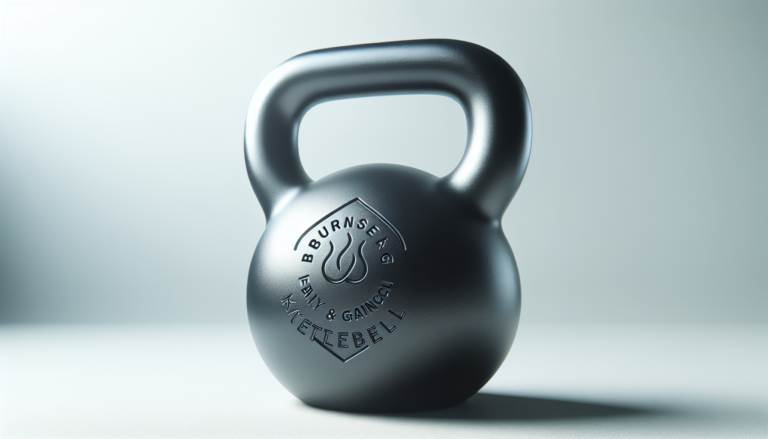Lose Belly Fat After Pregnancy
Congratulations on your journey through pregnancy! Now that you have welcomed your beautiful bundle of joy into the world, you may find yourself wondering how to shed those extra pounds accumulated during pregnancy. Fear not, for in this article, we will explore effective and safe methods to help you lose that stubborn belly fat post-pregnancy. With simple lifestyle changes, healthy eating habits, and a sprinkle of self-care, you’ll be on your way to reclaiming your pre-pregnancy body in no time. So, get ready to embrace this exciting new chapter and say hello to a fitter, more confident you!
Exercise
Cardiovascular Exercises
Cardiovascular exercises, also known as aerobic exercises, are an integral part of any postpartum weight loss journey. These exercises involve repetitive movements that increase your heart rate and promote calorie burning. Engaging in activities such as brisk walking, jogging, swimming, cycling, or dancing helps to reduce overall body fat, including belly fat. Cardiovascular exercises are not only effective for weight loss but also have numerous benefits for your cardiovascular health.
Strength Training
Strength training exercises are essential for building lean muscle mass and increasing your metabolism. By incorporating resistance exercises into your postpartum workout routine, you can target specific muscle groups, tone your body, and enhance overall strength. Some effective strength training exercises include squats, lunges, push-ups, and lifting weights. Remember to start with lighter weights and gradually increase the intensity as your body becomes stronger.
Core Exercises
Strengthening your core muscles is crucial for getting rid of belly fat post-pregnancy. Core exercises help tone and tighten your abdominal muscles, improving their appearance and reducing belly fat. Plank exercises, crunches, and pelvic tilts are some examples of effective core exercises. It’s important to perform these exercises with proper form and engage your core muscles for maximum results.
Postpartum Yoga
Yoga is not only beneficial for postpartum recovery but also helps in losing belly fat. It improves flexibility, strengthens muscles, reduces stress, and promotes overall well-being. Postpartum yoga focuses on gentle stretches and exercises that target the abdominal area. It also helps in relaxing and calming your mind, which can be particularly beneficial during the postpartum period.
Pelvic Floor Exercises
Pelvic floor exercises, also known as Kegel exercises, are essential for postpartum recovery and strengthening the pelvic floor muscles. These exercises help in reducing belly fat by toning the muscles in the pelvic area. Strong pelvic floor muscles also provide support to the abdominal area and help in maintaining good posture. To perform Kegel exercises, simply contract and relax the muscles that control urine flow.
Healthy Eating
Focus on Nutrient-Dense Foods
When attempting to lose belly fat after pregnancy, it’s important to focus on consuming nutrient-dense foods. These foods provide a rich source of vitamins, minerals, and other essential nutrients without adding excessive calories. Include plenty of fruits, vegetables, whole grains, lean proteins, and healthy fats in your diet to aid in weight loss and overall well-being.
Eat Small and Frequent Meals
Eating small and frequent meals throughout the day can help regulate your metabolism and prevent overeating. Consuming balanced meals and snacks at regular intervals keeps your energy levels stable, reduces cravings, and boosts your body’s fat-burning potential. Ensure your meals include a combination of carbohydrates, proteins, and healthy fats to keep you feeling satisfied and nourished.
Stay Hydrated
Drinking an adequate amount of water is crucial for postpartum weight loss. Water helps to flush out toxins, maintain proper digestion, and keep your body hydrated. It also helps to increase your metabolism and reduce feelings of hunger. Aim to drink at least 8 cups of water per day, and consider incorporating herbal teas or infused water for added flavor and hydration.
Avoid Processed and Sugary Foods
Processed and sugary foods are high in empty calories and can hinder your weight loss progress. These foods often lack essential nutrients and can lead to excessive weight gain. To lose belly fat after pregnancy, avoid foods such as soda, candy, packaged snacks, and fast food. Instead, opt for whole, unprocessed foods that nourish your body and support your weight loss goals.
Breastfeeding as a Weight Loss Aid
Breastfeeding can help in losing belly fat and aiding in postpartum weight loss. It burns extra calories, promotes the release of hormones that help shrink the uterus, and provides beneficial nutrients to your baby. To maximize the weight loss benefits of breastfeeding, ensure that you are consuming sufficient calories and nutrients to support both your needs and your baby’s growth.

Manage Stress
Get Adequate Sleep
Getting enough sleep is crucial for overall health and plays a significant role in postpartum weight loss. Lack of sleep can disrupt your hormones, increase food cravings, and make it harder to stay motivated. Aim for 7-8 hours of uninterrupted sleep per night by establishing a consistent bedtime routine and creating a sleep-friendly environment.
Practice Mindfulness
Practicing mindfulness can help manage stress levels and promote a healthy mindset. Being present in the moment and paying attention to your thoughts, feelings, and sensations can reduce emotional eating and promote better overall well-being. Incorporate mindfulness techniques such as deep breathing exercises, meditation, or yoga into your daily routine to reduce stress and support your weight loss journey.
Engage in Relaxation Techniques
Engaging in relaxation techniques such as deep breathing exercises, progressive muscle relaxation, or taking a warm bath can help reduce stress and promote a sense of calm. When you feel overwhelmed, take a few moments to relax and center yourself. These techniques can help regulate stress hormones and prevent emotional eating.
Seek Support
Seeking support from your loved ones or joining a postpartum support group can be incredibly beneficial in managing stress and staying motivated. Surround yourself with individuals who understand your journey and can provide encouragement and advice. Having a support system can make a significant difference in maintaining emotional well-being and achieving your weight loss goals.
Take Time for Yourself
Taking time for yourself is essential during the postpartum period. Carve out moments in your day for self-care activities that bring you joy and relaxation. Whether it’s reading a book, going for a walk, practicing a hobby, or enjoying a bubble bath, prioritizing self-care allows you to recharge and better cope with stress. Remember, taking care of yourself is vital for your overall well-being and weight loss journey.
Breastfeeding
Benefits of Breastfeeding in Weight Loss
Breastfeeding has numerous benefits for both you and your baby, including its potential impact on postpartum weight loss. Breastfeeding burns extra calories, as your body needs energy to produce milk. It also releases hormones that help shrink the uterus and return it to its pre-pregnancy size. Additionally, breastfeeding promotes the bonding between mother and baby and provides essential nutrients for your baby’s growth and development.
Eat Sufficient Calories and Nutrients
While breastfeeding, it’s important to consume sufficient calories and nutrients to support both your needs and your baby’s growth. Restricting your calorie intake too much can decrease your milk supply and negatively impact your energy levels. Focus on nourishing, well-balanced meals that include a variety of fruits, vegetables, whole grains, lean proteins, and healthy fats.
Avoid Crash Dieting
Crash dieting is not recommended while breastfeeding, as it can deprive your body of essential nutrients and affect your milk supply. Losing weight too quickly may also release toxins stored in adipose tissue into your breast milk. Instead, opt for gradual and sustainable weight loss strategies that support your overall health and well-being.
Consult a Lactation Specialist
If you have concerns about breastfeeding or need assistance with any nursing-related issues, don’t hesitate to consult a lactation specialist. These professionals can provide guidance, support, and advice to help ensure a successful breastfeeding journey while also managing your weight loss goals effectively.
Exercise Caution with Weight Loss Supplements
While some weight loss supplements may claim to aid in postpartum weight loss, it’s important to exercise caution when considering their use. Many supplements are not regulated and may contain ingredients that could be harmful during breastfeeding. Always consult with your healthcare provider before taking any supplements to ensure their safety and effectiveness.

Hormonal Changes
Understanding Postpartum Hormonal Changes
After childbirth, your hormone levels undergo significant changes. These changes, including fluctuations in estrogen, progesterone, and cortisol levels, can affect your body’s ability to lose weight, particularly in the belly area. Understanding and accepting these hormonal changes is crucial for setting realistic expectations and maintaining patience throughout your weight loss journey.
Impact on Belly Fat
Postpartum hormonal changes can contribute to the accumulation of belly fat. Elevated cortisol levels, known as the stress hormone, can cause weight gain, especially in the abdominal area. Additionally, the decrease in progesterone levels after giving birth can negatively impact the metabolism and make losing belly fat more challenging. However, with the right lifestyle choices and strategies, it is still possible to achieve your weight loss goals.
Be Patient with the Process
Losing belly fat after pregnancy is a gradual process that requires patience and persistence. It took nine months for your body to change, and it may take some time to revert to its pre-pregnancy state. Remember to be kind to yourself and celebrate small victories along the way. Embrace the journey and focus on nourishing your body and mind for long-term success.
Hormonal Imbalance and Weight Gain
Hormonal imbalances, such as hypothyroidism or polycystic ovary syndrome (PCOS), can contribute to weight gain or make losing belly fat more challenging. If you suspect a hormonal imbalance, consult a healthcare provider who can evaluate your symptoms, order appropriate tests, and create a treatment plan to address any underlying conditions.
Consult a Healthcare Provider
When embarking on a postpartum weight loss journey, it’s essential to consult a healthcare provider who can guide you with professional advice tailored to your specific needs. A postpartum check-up is an excellent opportunity to discuss your weight loss goals, evaluate any underlying conditions, and address any concerns or questions you may have. Your healthcare provider can provide valuable insights and support throughout your weight loss journey.
Consistency and Patience
Set Realistic Goals
Setting realistic and achievable weight loss goals is vital for motivation and success. Avoid aiming for rapid weight loss or trying to achieve an unrealistic body shape. Instead, focus on sustainable and gradual weight loss, aiming for a healthy range of 1-2 pounds per week. By setting realistic goals, you’ll maintain motivation and reduce the risk of disappointment.
Slow and Steady Progress
Remember that slow and steady progress is key to long-term success. Don’t be discouraged if the weight doesn’t come off as quickly as you’d like. Sustainable weight loss is about making lasting lifestyle changes rather than pursuing quick fixes. Focus on making healthy choices daily, and trust that the progress you make will contribute to meaningful and lasting results.
Track Your Progress
Tracking your progress can provide valuable insights and keep you motivated throughout your weight loss journey. Consider keeping a food diary, recording your workouts, or taking measurements of your waist and hips. Celebrate positive changes and use any setbacks as opportunities for learning and adjustment.
Don’t Get Discouraged
Weight loss is not always linear and can plateau at times. Don’t get discouraged if you experience periods of slower progress. Plateaus are a normal part of the weight loss process and can be overcome with adjustments to your routine and mindset. Stay consistent and keep focusing on nourishing your body and engaging in healthy habits.
Celebrate Milestones
Throughout your postpartum weight loss journey, remember to celebrate milestones and achievements along the way. Whether it’s fitting into a favorite pair of jeans or completing a new fitness milestone, acknowledge and reward yourself for your hard work and commitment. Celebrating accomplishments helps to keep motivation high and reinforces positive behaviors.
Avoid Crash Dieting
Negative Effects of Crash Dieting
Crash dieting, or severely restricting calories and food groups, can have negative effects on your health and make it harder to lose belly fat. Crash diets often deprive your body of essential nutrients, negatively impact your metabolism, and can lead to muscle loss. They can also promote an unhealthy relationship with food and increase the risk of weight regain in the long term.
Focus on Sustainable Weight Loss
Instead of resorting to crash dieting, focus on sustainable weight loss strategies that promote overall health and well-being. Aim for a balanced and varied diet that includes adequate calories and nutrients. Consistency and long-term lifestyle changes are key to achieving and maintaining a healthy weight.
Consult with a Nutritionist
If you need guidance in creating a balanced meal plan or have specific dietary needs, consider consulting with a nutritionist or dietitian. These professionals can provide personalized advice and help you develop a healthy and sustainable eating plan based on your individual needs and preferences.
Create a Balanced Meal Plan
Creating a balanced meal plan is essential for postpartum weight loss. Aim to include foods from all major food groups, such as fruits, vegetables, whole grains, lean proteins, and healthy fats. Balancing your meals will help regulate your blood sugar levels, keep you feeling satisfied, and provide adequate nutrition for your body’s needs.
Listen to Your Body
Listen to your body’s hunger and fullness cues to guide your eating habits. Eat when you’re hungry, and stop eating when you’re comfortably full. Pay attention to how different foods make you feel and prioritize nourishing your body with nutrient-dense options. Remember, it’s about fostering a healthy and sustainable relationship with food rather than strict rules or deprivation.
Prioritize Sleep
Importance of Adequate Sleep
Adequate sleep is crucial for overall health and plays a significant role in your postpartum weight loss journey. Lack of sleep can disrupt your hormones, increase cravings for sugary and high-fat foods, and hinder your motivation to engage in physical activity. Prioritizing quality sleep can support your weight loss efforts and promote overall well-being.
Establish a Bedtime Routine
Establishing a consistent bedtime routine can help signal to your body that it’s time to unwind and prepare for sleep. Create a relaxing environment by dimming lights, avoiding electronic devices, and engaging in soothing activities such as reading a book or taking a warm bath. Establishing a regular sleep schedule can improve the quality and duration of your sleep.
Create a Sleep-Friendly Environment
Creating a sleep-friendly environment is essential for achieving restful sleep. Ensure your bedroom is cool, dark, and free of distractions. Invest in comfortable bedding, pillows, and blackout curtains to create a peaceful space conducive to quality sleep. Remove electronic devices and minimize noise to minimize sleep disruptions.
Avoid Caffeine and Electronics before Bed
Avoiding caffeine and electronic devices in the hours leading up to bedtime can promote better sleep quality. Caffeine is a stimulant that can interfere with falling asleep, while the blue light emitted by electronic devices can suppress the production of melatonin, a hormone that regulates sleep. Opt for herbal teas or relaxation techniques to unwind before bed.
Seek Help for Sleep Issues
If you’re experiencing ongoing sleep issues, such as insomnia or disrupted sleep patterns, consider seeking help from a healthcare provider or sleep specialist. They can evaluate your sleep patterns, identify any underlying causes, and provide guidance or treatment options to improve your sleep quality and support your weight loss journey.
Postpartum Support
Join a Support Group
Joining a postpartum support group can provide a valuable network of individuals who understand and share similar experiences. Connecting with other new moms allows you to share challenges, get advice, and gain insight into different perspectives. Online or in-person support groups can be a great source of encouragement and motivation throughout your weight loss journey.
Connect with Other New Moms
Connecting with other new moms, whether through parenting classes or community events, can be incredibly beneficial for your emotional well-being and weight loss journey. Building friendships with others who are going through similar experiences provides a sense of camaraderie, understanding, and shared motivation.
Share Experiences and Tips
Sharing your experiences, challenges, and tips with other new moms can be empowering and enlightening. Join online parenting forums or social media groups dedicated to postpartum health and weight loss. By exchanging ideas and insights, you can learn from others and discover strategies that may work for you.
Seek Emotional Support
Postpartum emotional support is crucial for overall well-being and mental health. Reach out to your loved ones, partner, or a therapist if you are struggling with feelings of stress, anxiety, or postpartum depression. Having someone to talk to can help alleviate emotional burdens and provide encouragement throughout your weight loss journey.
Talk to a Postpartum Counselor
If you find yourself facing unique challenges or struggling to cope with the postpartum period, consider seeking support from a postpartum counselor or therapist. These professionals specialize in postpartum mental health and can provide guidance, coping strategies, and emotional support tailored to your specific needs.
Consult a Healthcare Provider
Get a Postpartum Check-Up
Scheduling a postpartum check-up with your healthcare provider is essential to ensure your overall health and well-being. This visit allows your provider to evaluate your physical recovery, address any concerns or complications, and discuss your weight loss goals in a supportive and professional environment.
Discuss Weight Loss Goals
During your postpartum check-up, discuss your weight loss goals with your healthcare provider. They can provide guidance and recommendations specific to your individual needs, taking into account factors such as your medical history, current health status, and any underlying conditions.
Evaluate Any Underlying Conditions
Your healthcare provider can also evaluate and address any underlying conditions that may be impacting your weight loss journey. Conditions such as thyroid disorders or hormonal imbalances can affect your metabolism and make losing belly fat more challenging. By identifying and treating these conditions, you can optimize your weight loss efforts.
Address Concerns or Questions
Use the opportunity of a postpartum check-up to address any concerns or questions you may have regarding your weight loss journey. Your healthcare provider is there to provide support, answer your questions, and offer evidence-based advice. Be open and honest about your goals, challenges, and expectations to ensure a productive discussion.
Follow Professional Advice
After consulting with your healthcare provider, it’s important to follow their professional advice and recommendations. Your healthcare provider is equipped with the knowledge and expertise to guide you safely and effectively through your weight loss journey. By following their advice, you can optimize your results and prioritize your overall health and well-being.






